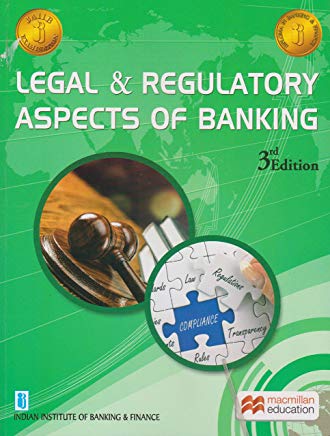JAIIB PPB Unit 13 - Bankers Special Relationship (Year: 2019)
1. A mandate (an unstamped agreement) is an authority given by the account holder in favour of a third person to do certain acts on his behalf.
2. Institutions cannot issue mandate, instead they issue a power of attorney.
3. Power of Attorney is a legal document (as it is a stamped document and is executed in the presence of a notary public/magistrate of a court/authorized government official) executed by one person called donor (principal) in favor of another person called donee agent to act on behalf of the former, as per the authority given in the document.
4. Donor means the person who issues Power of Attorney and donee means the person to whom Power of Attorney is given.
5. General/universal power of attorney is issued for acting in more than one transaction while special/limited Power of Attorney is issued for only one transaction.
6. Garnishee order is an order of the court obtained by a judgement creditor attaching the funds belonging to a judgement debtor (customer) in the hands of his debtors, including a bank, who is called a garnishee, advising not to release the money until directed by the court to do so.
7. Cheques presented after service of the garnishee order should be returned with the “refer to drawer” remark.
8. Preliminary proceedings of a court are called garnishee order nisi.
9. Subsequent proceedings of a court are called garnishee absolute.
10. When a bank has a prior right to set-off, the bank is not bound by the garnishee order.
11. When a lien is marked on fixed deposit receipts, it cannot be attached by a garnishee order.
12. Any excess over the lien is attachable by the garnishee order.
13. Orders received from the court for recovery of certain debts are called garnishee order.
14. Orders received from the revenue authorities (income tax/sale tax authority) are called attachment order.
15. Credits received after garnishee orders are not attachable because debts due or accruing at the time of receipt of order are only attachable.
16. In "Joint Accounts" with "Either or Survivor" clause, "Garnishee Order" if in a single name, cannot be attached.
17. In "Joint Accounts" with "Former or Survivor" clause, "Garnishee Order" if in a single name, can be attached.
18. The personal accounts of a partner can be attached with garnishee order for the firm’s debt.
19. The trust’s account cannot be attached garnishee order.
20. When a customer has more than 1 account and one is in credit and other is in debit, then the garnishee order can be attached only if the net result is in credit.
21. A lien is a right of the banker to retain possession of the goods and securities owned by the debtor until the debt due from the latter is paid.
22. The banker’s lien is an implied (understood) pledge (promise/guarantee).
23. In case of lien, the bank can sell the goods and securities in case the debt is not paid under section 171 of the Indian Contract Act 1872.
24. Lien cannot apply in safe deposit locker.
25. Set-off means adjusting debit balance in one account with an account having credit balance of the same customer.
26. A deceased credit account and a customer debit account cannot be combined.
JAIIB Study Material
| JAIIB Paper 1 Study Material |
| JAIIB Paper 2 Study Material |
| JAIIB Paper 3 Study Material |


